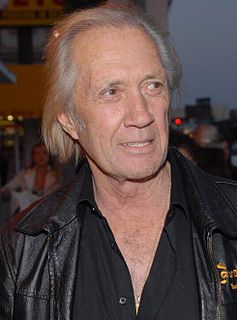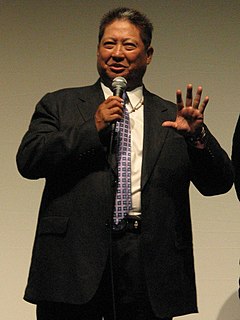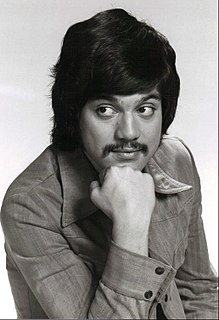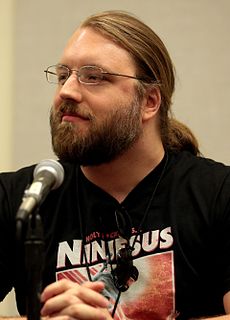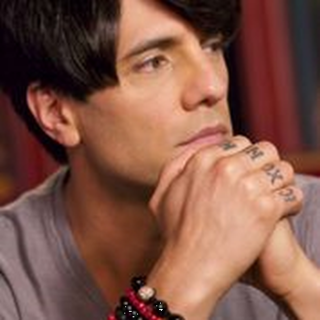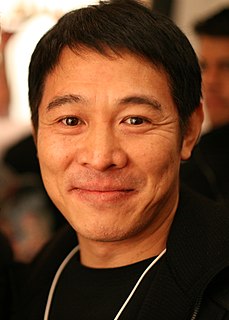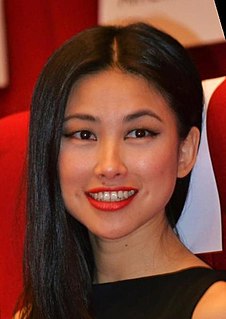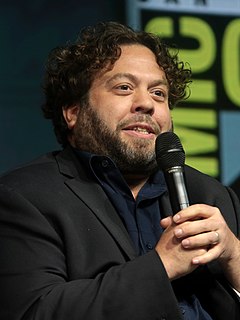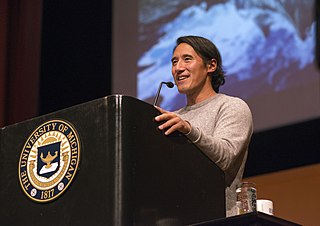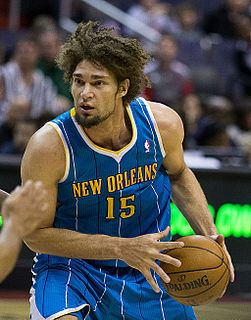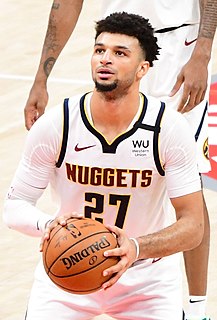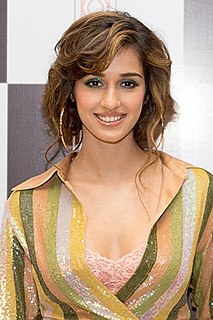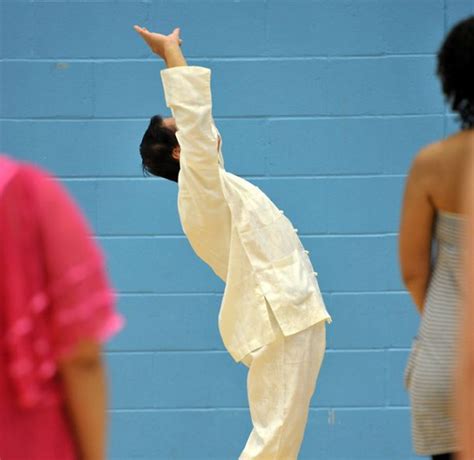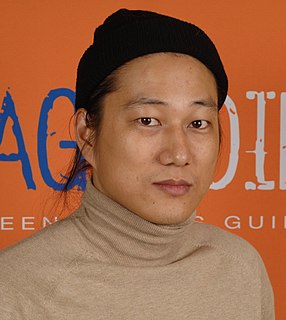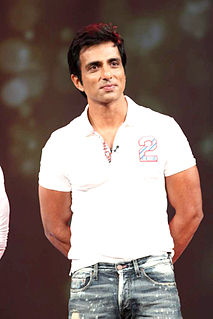Top 183 Kung Fu Quotes & Sayings - Page 2
Explore popular Kung Fu quotes.
Last updated on November 19, 2024.
I'm speaking of the pursuit of excellence in all things. All things! Presence of mind and devotion to craft. A great artist has these. A great chef. A great master of tea. There's powerful kung fu in a well-built house or an eloquent letter, but the limit of your imagination is bones breaking and bullets flying.
Well I think everything up to this point that I've been exposed to in my life has had an influence on me in some way, shape, or form even if I'm not conscious of it. So I definitely think that my studies in wu-shu, kung-fu, karate, kenpo, taikwando, all of that stuff certainly has an affect. I don't think I follow any discipline traditionally.
I think that Hollywood should also be influenced by directors from Hong Kong. You see how Quentin Tarantino is really the example of how you can develop, and how you can go ahead if you accept the existence of different cinematic cultures. There you have Quentin playing with kung-fu. That's why the independents are the most interesting.
In my research, I learned that the Boxers' kung fu wasn't all that formalized. The vast majority of them didn't belong to some age-old martial arts tradition. They were basically poor, starving teenagers doing the best they could to figure out how to fight, relying more on their mystical beliefs than formal training.
First, you have stereotypes, and that will be the black drug dealer, the east Asian kung fu master, the Middle Eastern terrorist in 'True Lies.' Then you have stuff that takes place on culturally specific terrain, that engages with it, but actually subverts assumptions. 'Smashes' stereotypes. That's where I've come into the game.
I never fought, I never learned kung fu or boxing, I never went into these sportif competitions. I wouldn't cross the ocean. I think it's ridiculous to take such risk. But look, people love to do that. But I was not afraid of doing things I wished to do. I did not think that woman would be restrained. I never saw that, especially not in filmmaking, where you don't have to be strong.
I didn't want a guru or a kung fu master or a spiritual director. I didn't want to become a sorcerer or learn the zen of archery or meditate or align my chakras or uncover mast incarnations...I was after something else entirely, but it wasn't in the Yellow Pages or anywhere else that I could discover.
When you see all of the pandas in this movie [Kung Fu Panda 3], they are rolling because that is exactly what they do. Not only were we able to watch the pandas play but we had free range to walk around and get a feel for the architecture and get a sense of where they lived ,so there's a lot of firsthand exploration.
